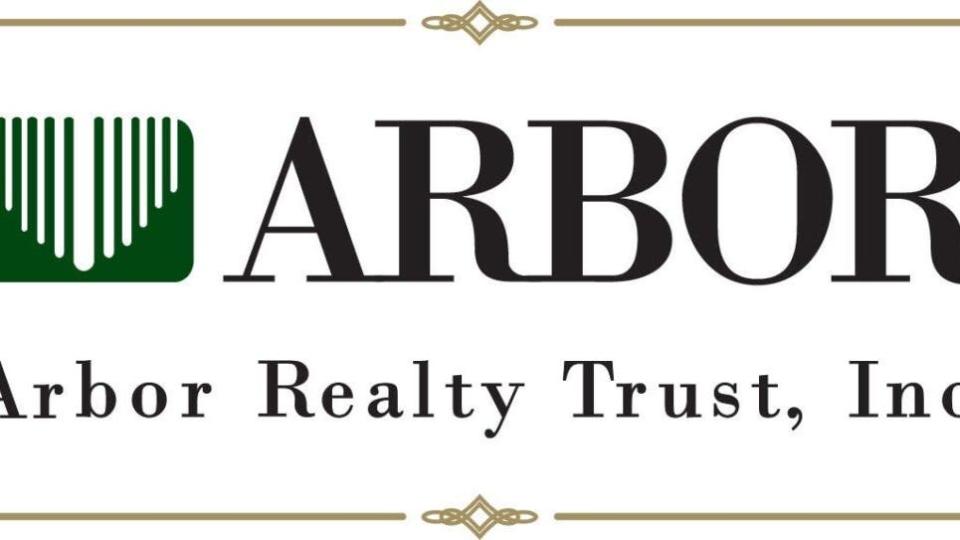
Benzinga and Yahoo Finance LLC may earn commission or revenue on some items through the links below.
Arbor Realty Trust (NYSE:ABR) consistently attracts investors looking for high-yield companies. With a forward dividend yield of 11.1% and a decade-plus track record of dividend raises, things look promising, but there may be more than meets the eye.
This Jeff Bezos-backed startup will allow you to become a landlord in just 10 minutes, and you only need $100.
Arbor Realty Trust is a mortgage REIT primarily involved in making loans to single-family realty portfolios and commercial real estate assets. Mortgage REITs tend to be more volatile than equity REITs because they are tied to interest rates, but the high yields make them appealing to watchful investors. Arbor Realty Trust manages a multibillion-dollar servicing portfolio that includes various loan types, from commercial mortgage-backed securities to mezzanine financing, bridge loans, and preferred equity arrangements.
Storm Clouds Gathering
The trouble with Arbor Realty Trust started several months ago when short interest in the company sharply increased. This signals investors believe the company may be headed for a sharp downturn. Arbor went on the offensive in May, issuing a release pointing out that the company had been the subject of short reports but stood by its filings and wouldn’t respond to individual short reports.
One of the most damning reports was issued by Viceroy Research late last year, which labeled the company “slumlord millionaires.” It called Arbor the “worst of the worst,” noting that the company’s loan portfolio was in serious distress and the value of the collateral used to guarantee the loans was overstated. Viceroy pointed out that many loans are coming due, and refinancing options may be limited. In its report, the research firm aimed at Arbor’s multifamily portfolio, stating that much of it was dilapidated and that “some properties have already been condemned and labeled as slums.”
Since that report, the drumbeat of concern around Arbor has only grown. Our research shows that short interest is a whopping 51%, increasing consistently since the Viceroy report was issued. That is a significant warning sign. Here’s another: Last week, it was reported that federal officials are investigating Arbor over its loan practices.
While this doesn’t mean that everything the Viceroy wrote is correct, it is another sign that perhaps all may not be as it seems at Arbor. Analyst sentiment is mixed, but the consensus is that it will underperform. However, it’s worth noting that many analysts still recommend the stock and see its potential.
Private credit offers up to 20% APY. Potential accredited investors are looking to capitalize on this growing asset class.
The Larger Macroeconomic Picture
Aside from the issues within the company, there is a systemic weakness in multifamily lending, with more multifamily loans sliding into delinquency. In January, Freddie Mac issued a report stating that due to a greater share of loans coming due over the next several years, there is increased refinancing risk for multifamily properties. The report shows that 42% of commercial loans, an estimated $500 billion, are backed by multifamily loans.
With regard to Arbor, sharp investors will want to pay attention to both the larger economic forecast, especially as it relates to interest rate cuts and Arbor’s results. If interest rates drop, Arbor’s prospects for refinancing could become brighter. Last quarter, Arbor beat earnings and revenue expectations even as loan originations dropped by over 41%. It stated that it had a strong cash position with approximately $800 million in cash and liquidity.
Arbor reports its second-quarter earnings within the next several weeks. We will examine how it addresses the federal investigation, the delinquency rate of its loans, and the overall loan origination rate. The stock has been down over 18% in the past year. This could represent a buying opportunity, but the risks facing this mortgage REIT are significant.
Looking For Higher-Yield Opportunities?
The current high-interest-rate environment has created an incredible opportunity for income-seeking investors to earn massive yields, but not through dividend stocks… Certain private market real estate investments are giving retail investors the opportunity to capitalize on these high-yield opportunities and Benzinga has identified some of the most attractive options for you to consider.
For instance, the Ascent Income Fund from EquityMultiple targets stable income from senior commercial real estate debt positions and has a historical distribution yield of 12.1% backed by real assets. With payment priority and flexible liquidity options, the Ascent Income Fund is a cornerstone investment vehicle for income-focused investors. First-time investors with EquityMultiple can now invest in the Ascent Income Fund with a reduced minimum of just $5,000.
Don’t miss out on this opportunity to take advantage of high-yield investments while rates are high. Check out Benzinga’s favorite high-yield offerings.
© 2024 Benzinga.com. Benzinga does not provide investment advice. All rights reserved.
This article Is It Time To Say Goodbye To This High-Yielding REIT? originally appeared on Benzinga.com















